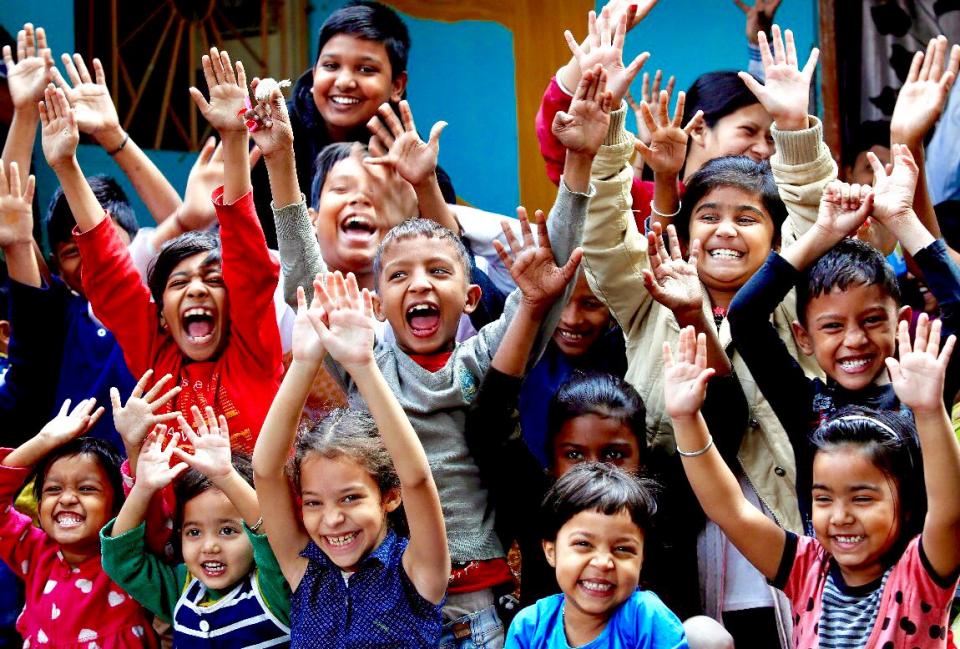- عربي
- 中文
- English
- Français
- Русский
- Español
2019 is a strategic milestone on the path towards ensuring children’s freedom from violence: SRSG-VAC Annual Report to the Human Rights Council

New York, 15 February 2019: The annual report of the SRSG-VAC to the Human Rights Council highlights 2019 as a year of opportunity to accelerate progress towards the elimination of all forms of violence against children. “2019 marks a strategic milestone on the path towards ensuring children’s freedom from violence, with the commemoration of the 30th anniversary of the adoption of the Convention on the Rights of the Child; the review of progress by the high-level political forum on sustainable development on the implementation of the 2030 Agenda, including its violence-related SDG targets; and, a Heads of State Summit at the General Assembly to review implementation of the whole 2030 Agenda,” highlights SRSG-VAC Santos Pais.
Building upon the recommendation of the 73rd session of the General Assembly to extend her mandate for a further period of three years, the SRSG-VAC will actively engage in these processes and produce a global thematic report on ending violence against children, in cooperation with a wide range of partners. The thematic report will take stock of progress made during the first four years of the 2030 Agenda, documenting lessons learned, acknowledging challenges and opportunities for positive change, and anticipating strategic actions needed to realize its vision of a world free from fear and from violence, leaving no child behind. Importantly, a significant contribution of the report will reflect the views, experiences and recommendations of children and young people who are crucial agents for change.
The annual report acknowledges progress made in children’s protection from violence; progress upon which future action can build. States have a lead responsibility in this process, but many other stakeholders are supporting these efforts, including UN agencies. regional organizations, civil society allies, religious leaders, the private sector and children themselves. As a result, significant results are being achieved. For example: close to 100 countries around the world have adopted a comprehensive national policy agenda on violence against children; more than 50 have enacted comprehensive legislation to prohibit physical, psychological and sexual violence, to protect child victims and to fight impunity; and national research and data systems on childhood violence, effective prevention strategies and progress monitoring have been further consolidated.
The report gives high attention to some manifestations of violence. Children’s protection from bullying and cyber-bullying gained special relevance with the adoption of the second report of the Secretary-General to the General Assembly, ‘Protecting children from bullying’. (Download the report: A/RES/73/154). Drawing on submissions from governments, civil society and academia, and on three important expert consultations organized in collaboration with the Special Representative in China, Mexico and the Republic of Korea, the report documented positive experiences, highlighted successful approaches to tackling bullying, and identified major areas where additional action and research are needed.
The annual report also notes the significant initiatives promoted around the world to protect children from violent discipline. This is a particularly pervasive form of violence, and it often starts in early childhood, as emphasized in the Special Representative’s report ‘Violence prevention must start in early childhood’. (Download the publication). “Protecting children from violence in their early years is not only a question of children’s rights, it is also a highly cost-effective strategy, leading to better health and education and to increased national wealth, while also reducing the social cost of addressing the long-term consequences of violence in childhood,” noted SRSG-VAC Santos Pais.
Moreover, the annual report places a special emphasis on the high risk of violence faced by children with disabilities - almost four times higher than children without disabilities. Bullying, humiliation, physical aggression, isolation and mercy killings are some of the manifestations of violence they may endure. But in addition, these children often experience stigmatization, social exclusion and discrimination; are less likely to attend school and enjoy health care services of quality; and, in many countries continue to be exposed to a high risk of placement of institutions, as well as to excessive medication. Protecting children with disabilities from violence is a key concern for the Special Representative, who joined the Secretary-General’s Special Envoy on Disability and Accessibility to launch the 10 principles campaign for the protection, well-being and development of children and adolescents with disabilities. The campaign was developed with the participation of, and messaging by, children with disabilities, and is aimed at the elimination of violence.
Partnering with children and listening to their voices and experiences is critical to achieve progress in violence prevention and elimination, and it continues to be a fundamental component of the Special Representative’s mandate. “The inspiring voices of children demanding an end to violence is the most compelling and urgent reason for action,” stressed SRSG-VAC Santos Pais. “And their views and recommendations are essential to inform successful action. Across regions, young advocates join hands with national authorities, civil society and many other allies in raising awareness, empowering young people to be the first line of protection, and inspiring many others to build a world where children can grow up respected and supported,” she added.
With this in mind, the annual report documents significant experiences of child participation across regions, showing a growing reliance on the use of digital tools which are helping to achieve positive change. “We remain strongly committed to work closely with children and young people, so their engagement, participation and support will be given special relevance in 2019, and more broadly in advancing progress in the implementation of the Convention on the Rights of the Child and of the 2030 Agenda for Sustainable Development,” concluded SRSG-VAC Santos Pais.
You are kindly invited to learn more by reading the full SRSG Annual Report to the Human Rights Council in English here: https://undocs.org/A/HRC/40/50
SRSG’s Annual Reports to the Human Rights Council and United Nations General Assembly: https://violenceagainstchildren.un.org/content/srsg-reports-1

